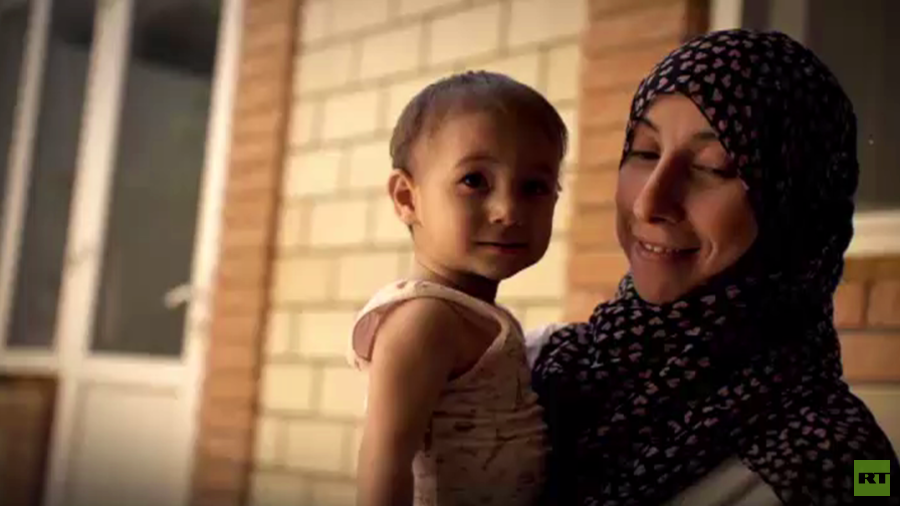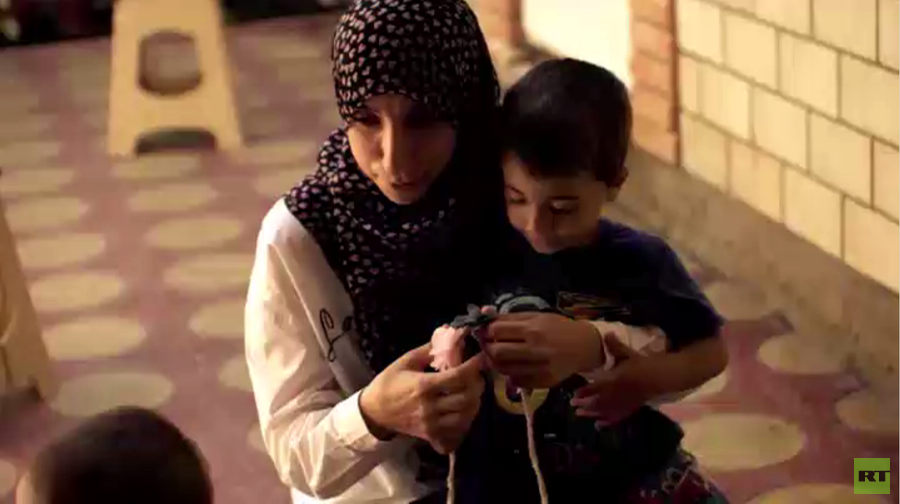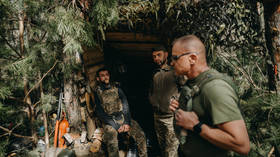‘You can’t just leave that place’: Woman sentenced after joining ISIS husband in Syria talks to RT

Living in constant fear, hiding from shelling with her children and no way out – a Russian woman who was sentenced to prison for being part of a terrorist group after following her ISIS husband to Syria shared her story with RT.
In February this year, Zagidat Abakarova from the Republic of Dagestan in southeastern Russia received an eight-year jail sentence for joining an illegal armed group. However, she won’t actually go to jail until her youngest child turns 14. The girl is currently one year old.
Speaking to RT’s Madina Kochenova, Zagidat recalled the story of her life, which has been turned upside down ever since she traveled to Syria. “I was 29 when I left [Russia], I went to Turkey first with my husband, I never thought I would end up there [in Syria],” the woman, who is now 33, admitted to RT.
Apparently, Zagidat’s husband joined the Islamic state (IS, formerly IS) group at some point. According to him, it was “safe” to go to Syria. “He said it was not how it was being shown, there was no bombing, he said, no war,” she recalled.
However, the reality was nothing like her husband’s words. Every single day – first in IS-occupied Tabqa and then in besieged Raqqa – Zagidat was living in fear. “Even my girl knew, she was only eight years old, but she could tell the difference in what was coming: an American Hercules plane, a fighter jet, a drone… she could tell by the sound,” she said, adding that she often ended up lying on the floor with her children so that shrapnel wouldn’t hit them.
Zagidat insists that she wanted to return home from the start, but her husband was strictly against it. “He told me ‘If you want to leave, leave – but I will not let you take the kids away,’” the woman said, adding that she knew he was capable of doing that. “He had that sort of character, and I was afraid,” Zagidat explained.
When her husband was killed in a drone strike, Zagidat started to look for ways out of terrorist-occupied Syria. “But it’s not that easy, you can’t just leave that place,” she said. Escape “has to be done in secret, there are people that can sell you out, trick you. I only talked to those who I knew well and one day I was told that there was this road, that there was a way out,” she recalled.
Finally she made it. Around a year ago, she was aboard a plane with Russian-speaking women and children who arrived in the Chechen capital Grozny. Back then, Zagidat had no idea that her life in Syria would make her a criminal in her home country. “I stayed at home all the time, I had my children. I had no time for anything else, I was at home, taking care of my kids,” she insisted.

People like Zagidat need rehabilitation and have to be close to their families, human rights activist Kheda Saratova told RT. “They are under huge stress and prison will not help them, it will only make them more harsh, I believe it’s wrong to put them behind bars,” she said.
Now, Zagidat lives with her mother in Dagestan. She has to report to the police every month and can’t leave the region. She also has had difficulties in finding a job. Despite all her problems, Zagidad says she’s just happy to see her children safe. “I was literally suffering there because I was unable to provide food for my children. They told me constantly ‘Mom, we are hungry,’” she stated emotionally, looking at her son.
Like this story? Share it with a friend!














